Search Results
Showing results 1141 to 1160 of 2051

Keep a "SLOG" (Sleep Log)
Source Institutions
In this activity (1st on the page), learners keep a "SLOG" or Sleep Log to study their sleep patterns.
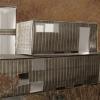
Make a Model of a Home Made From Shipping Containers
Source Institutions
In this activity, learners watch a video to learn about a couple who built a home out of shipping containers in Brooklyn, New York.
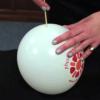
Balloon Kebabs
Source Institutions
In this demonstration, learners observe the effects of density and pressure by attempting to make "balloon kebabs." Learners will try to insert a wooden skewer all the way through an inflated balloon

Shimmering Lenses
Source Institutions
In this activity, learners use Jell-O to explore lenses. Learners cut Jell-O into convex and concave lens shapes and examine how light exits each lens in a darkened room.
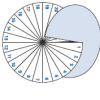
Sleep Patterns
Source Institutions
In this activity about sleep rhythms (on page 21 of the PDF), learners will collect data about their own sleep cycles and use a fraction wheel to examine their data.
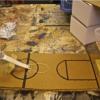
Finger Basketball
Source Institutions
In this activity, learners build mini-basketball courts using cardboard and measuring spoons. Use this activity to introduce learners to catapults, forces, and levers.
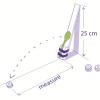
Volcanic Material Catapult Investigation
Source Institutions
This activity (located on page 3 of the PDF under GPS: Lava Flow Activity) is a full inquiry investigation into the relationship between an object’s mass and the distance it is thrown by a catapult.
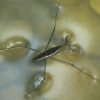
Breaking the Tension: Surface Tension 1
Source Institutions
Learners explore how the attractive forces between water molecules create surface tension and allow certain objects to float on the surface of water.

Rolling Returns
Source Institutions
In this activity, learners build a special rolling can that returns back to you when you push it forward. Use this activity to demonstrate the transfer of energy between kinetic and potential energy.
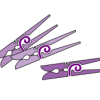
Good Stress
Source Institutions
In this activity about physical stress (page 28 of PDF), learners discover that muscles and bones need to work to stay strong.

Community Wind Project
Source Institutions
In this thought-provoking activity, learners plan a hypothetical project to build and operate wind turbines in their community.
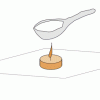
Finding the Carbon in Sugar
Source Institutions
In this activity about combustion and energy, learners observe a burning candle in a sealed jar and the burning of white sugar.
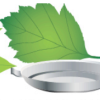
Paper Chromatography with Leaves
Source Institutions
In this activity on page 5 of the PDF (Plants—The Green Machines), learners use chromatography to separate and identify pigments within various leaves.

Cabbage Juice Indicator
Source Institutions
In this chemistry activity, learners make indicator solution from red cabbage. Then, learners test everyday foods and household substances using the cabbage juice indicator.
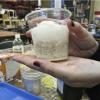
Hot & Cold
Source Institutions
In this activity, learners experiment with hydrogen peroxide, vinegar, yeast, and baking soda to produce hot and cold reactions. Use this activity to demonstrate exothermic and endothermic reactions.
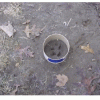
Makin' Tracks
Source Institutions
In this activity, learners make plaster casts of an animal track to learn more about animals and animal behavior.

Three Bean Salads
Source Institutions
This game teaches ratio and proportion by having learners make "salads" that combine three types of beans in different combinations.

What is Blood Pressure?
Source Institutions
In this activity about heart health (on page 34 of the PDF), learners measure their own blood pressure using an electronic blood pressure monitor with a self-inflating cuff (included in cost of materi

Weather Vane
Source Institutions
In this meteorology activity, learners build weather vanes using straws, paperclips, and cardstock.

Sharks: Taking a Bite Out of The Myth
Source Institutions
In this activity, learners will explore trends in shark populations using shark landing data from the National Marine Fisheries Service.
